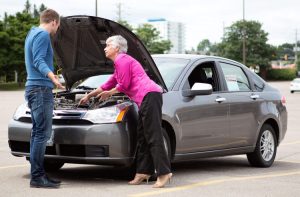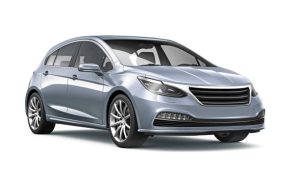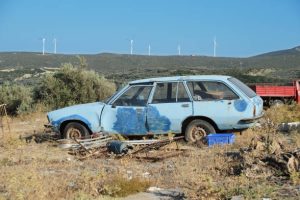
The cabinet note, according to reports, aims to assign responsibility to different ministers. The Ministry of Road Transport and Highways proposed to develop a framework for the phase-out of petrol and diesel vehicles by 2030. The suggestion of a pilot e-highways program with an overhead electric network for trucks, buses, and other autos was also discussed.
The Shockwaves
The proposal is a shock for gasoline-based automakers who were trying to find ways to convert their fleets to electric vehicles to meet the National Electric Mobility Mission 2030, which was to achieve 30% e-mobility. Mahindra & Mahindra, Hero MotoCorp, and other companies have already made a move towards EV conversion.
The automotive industry has a hard time digesting the NITI Aayog’s full evolution plan. The proposal, which aims to make India a “clean nation,” is both visionary and unrealistic. The government is taking important steps to promote green mobility, but it needs a solid and executable plan.
Commercial Vehicles
Amitabh Kant, CEO of NITI Aayog, had suggested earlier that electric-powered two-wheelers and three-wheelers up to 150 cc in engine size should only be sold by 2025. In the proposal, it is also indicated that cab aggregators replace their petrol and diesel-powered vehicles with electric ones.
In March of this year, the Cabinet approved the second phase of FAME II (Faster Adoption and Production of Electric Vehicles) for the improvement of charging infrastructures and subsidies on the purchase of EVs. In order to meet the target of manufacturing 50 Gigawatt hours (GWh) of batteries by 2030, the government has proposed extending financial incentives.
The GST Game
Reports claim that the government is considering reducing the goods and service tax (GST), which currently stands at 12 percent, to just 5 percent. The GST Council is scheduled to meet on the 20th of June and will likely discuss a number of issues, including the tax reduction for EVs. NITI Aayog made this proposal.
Tax reductions are also expected to encourage global manufacturers, who have a growing interest in InIndia’s-mobility sector, to invest and help reduce pollution. Electric vehicles have become popular in public transport. Bike-sharing platforms such as Yulu Mobycy Rapido ONN Bikes Bounce Vogo Ola Electric have pushed electric adoption.
The Changing Directions
The Indian Automobile InIndustry’sodal organization, SIAM (Society of Indian Automobile Manufacturers), has proposed that by 2025, petrol-powered passenger and two-wheeler vehicles be compatible with blends of 10% ethanol (E10) or 33% methanol.
The report recommended that certain vehicles be compatible with gasoline blended with 20% ethanol (E20) if fuel stations continue to offer fuels with separate labels. SIAM stated that if CNG infrastructure were doubled beyond the level of 2020 of 3,000 stations for four-wheelers, then penetration of CNG vehicles would likely increase to over 5.2 million.
The industry body stated in a recent white paper entitled “A” alternative Fuels for Vehicles” “that. At the same time, electrifying fleets will help to improve energy security and the environment; India must also make other efforts to achieve the ultimate goal of enhancing India’s energy.
Upgrade your EV Game
Indian startups have been adopting electric vehicles in a big way. Bus aggregator ZipGo started fleets of EVs, while car rental startup Zoomcar started electrifying its vehicles. Ashok Leyland began its electric bus venture a year earlier. Mahindra & Mahindra has also launched its electric car-hailing service, Glyd. SmartE is an electric three-wheeler operator.
Orxa GoGreenBov and Ultraviolette have all made the swappable battery option available. Chetan MAINI, co-founder and CEO of SUN Mobility (which built India’s electric car, Reva, now part of Mahindra Group), is one of the most prominent names in the industry working to establish the swappable batteries infrastructure for electric bikes, electric auto-rickshaws, across the country.
EdiEditor’ste:
Join the roundtable on ELECTRIC VESSELS at our Entrepreneur show to learn more about E-mobility trends and discussions. Register for this insightful session.
Entrepreneur MedMedia’s event, Entrepreneur 2019, is held annually. Entrepreneurs, investors, innovators, and disruptors gather in this vibrant environment to discuss, debate, and deconstruct the future. Entrepreneur MedMedia’snth Edition brings together the Movers and Shakers of India and the Asia Pacific.





